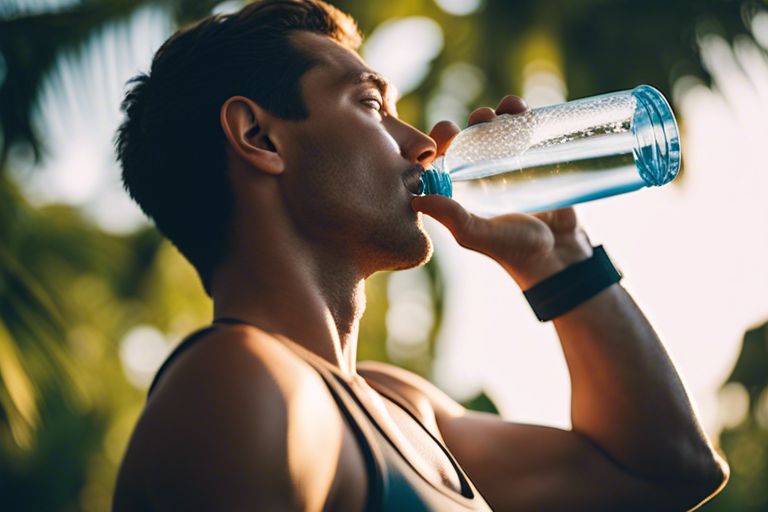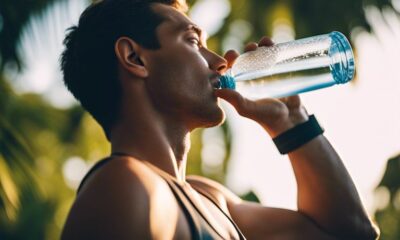Health & Society
The court concludes that Spanish Psychiatrists are required to withstand criticism from CCHR no matter how harsh.
This is a translated version of an article originally published by Carlos Berbell in Spanish, in the most read and renowned legal newspaper in Spain, CONFILEGAL.
Freedom of expression includes criticisms of the conduct of those against whom they are directed, even when such criticisms may be unsavory and cause annoyance, disturbance or disgust, as long as it serves the public interest and does use expressions that are not manifestly injurious or vexatious.
As a guarantee of a free public opinion, the rights to freedoms of expression and of information are essential. This is a prerequisite for pluralism and tolerance, as well as an openness that is essential to a democratic society.
The Fourteenth Section of Madrid’s Provincial Court reached this conclusion in its appeal ruling. It overturned the lower court decision and cleared the Church of Scientology associations Citizens Commission on Human Rights International – registered California, USA – and Citizens Commission on Human Rights of Spain – registered Spain – of the charge of unlawful interference with Spanish psychiatrists’ honour.
“Church whose axis revolves about Dianetics, which is regarded as a true science distinct from psychiatry.The psychiatrist has described the fight against which the group has been engaged. Thomas Szasz Professor Emeritus of Psychiatry, Syracuse University, New York. Recognized critic of the scientific and moral foundations of psychiatry. One of the leading figures in anti-psychiatryConfilegal had access to a court ruling dated 10th February.
According to the magistrates Maria del Rosario Campesino Temprano, Juan Uceda Ojeda -rapporteur- and Jesus Alemany EguidazuThe Spanish Society of Psychiatry, the plaintiff, must bear all criticisms, no matter how harsh.
In its ruling, the court stated that “we do not believe we can accept the right to honor should prevail over the right to freedom expression in the health field.”
The ruling of the Provincial Court of Madrid confirms that there has not been an illegitimate invasion nor an injury to all psychiatrists who are SEP members, as claimed by the SEP.
In this case, Article 20 of Spanish Constitution must prevail.
It refers to the jurisprudence of the Spanish Constitutional Court, contained in the judgments 216/2013 of 19 December and the judgments of the Civil Chamber of the Spain Supreme Court, 375/2013 of 5 June, as well as 5/2014 of 14 January and 423/2014 of 30 July.
Professor of Procedural law at Carlos III University was the representative of the American association. Victor Moreno Catena. Lawyers represented the Spanish association Isabel Ayuso Puente You can also find out more about the following: Gregorio Arroyo Hernansanz. And the SEP by Carles Vendrell CervantesUria Menendez
Both associations were previously condemned by the head of Madrid’s 59th Court of First Instance on 19 November 2021. He had ordered the ban of publications on www.cchr.org.es and www.ccdh.es, in which they harshly criticized psychiatrists.
This ruling has overturned a previous one.
The right to freedom of expression must prevail
The Madrid Provincial Court tribunal analyses the six articles that, according to SEP, would support an alleged illegal interference with the right of honour of all of its members.
The first says that Psychopaths are psychiatrists Because their treatments harm the body and mind They also degrade the individual. They also claim psychiatry as a pseudo-science which does not cure mental illnesses and that its treatments are often imposed on people without their consent.
“We consider that in the context of anti-psychiatric theory followed by defendant entities, which, we must assume, is well known to all psychiatrists. The phrase used by the plaintiff association could not harm the honor of the professionals, and in any event, it would be protected under the right to freedom to expression.“, says the ruling.
In the second, the author says that it’s not the doctors and pharmaceutical companies but Behind it all, there are psychiatrists and psychiatry.
“Pharmaceutical firms rely on experts in the field of psychology for their authority.” A false authority is one that solves problems in their field, but only covers up symptoms with their treatments. They either depress or excite the consciousness of a person with powerful harmful drugs, which force, like poisons the body and mind into deterioration.”
The court’s assessment seems to be very clear:Some of the terms or expressions that have been deemed offensive could imply that economic profit is more important than the purpose of healing and therapy. We do not accept that the right of honour should be given precedence when compared to the right to freedom to expression in the health field.“.
The third person says that psychiatry is a story of failure. “Psychiatrists still have a bad reputation among their medical colleagues. They are called bumbling, and second-rate” and “Psychiatry has probably been the most destructive force in society over the last 60 years,” According to Edward Shorter You can also find out more about the following: Dr Thomas Szasz.
The court says, “The alleged offence is”The issue stems from the fact that the practice of forced and involuntary treatment and institutionalisation without the consent or the patients is still being carried out.Thomas Szasz is one of the founding members of the Citizens Commission on Human Rights, as we already stated.“.
“We find no reason for us to believe that this publication is an illegal interference with the right of honour of SEP Members,” he continues.
“We believe the statements contained in this article are merely consequences or deductions from principles already defended and known by the various antipsychiatry groups that exist, which we believe the members of plaintiff association are well aware of.”
Fourth article “Drugs are a major problem in our world“. The plaintiff believes that the plaintiff’s honor is damaged by the claim that psychiatrists’ diagnosis are fraudulent, and that they are used to ‘deceive people who are in perfect mental health’ in order to be prescribed psychiatric medications.“.
This article, like the second publication of the three magistrates’, “The work of psychiatrists has been criticised again by denying their authority and the effectiveness of their treatments, and by using drugs to treat so-called mental disorders that are on the rise and which have allowed pharmaceutical products to be extended to different spheres.“.
“If we can find words which could be offensive to some doctors, by accusing them that they have abandoned the curative purpose but, from reading the entire article, it can be easily seen that it is part of a criticism of social disorders in every field of life, that the author of this publication believes are caused by drugs. We believe that the clash between fundamental rights should tilt towards freedom of speech“, they insist.
The two texts below refer to two open letters. The first is addressed to primary care physicians, and the second is addressed to medical students..
The first accuses psychiatric doctors of using a plague drugs that cause mental holocausts and accuses them to not comply with the Hippocratic Oath.
The article reiterates the same theme: that the treatment with psychotropic drugs, which has been extended to general practitioners causes serious addictive effects, the annihilation and destruction of mental health and addictive effects, and mental holocaust with no appreciable result.
“But the judges emphasize that it is addressed to primary-care doctors, not psychiatrists.So that no attack on SEP members’ honour can be seen“.
PSYCHIATRISTS CRITICISED for not complying with the HIPPOCRATIC oath
In the open letter addressed to students, it is also pointed out that psychiatrists have been accused of not adhering to the Hippocratic Oath.
The author of this article, a medical doctor who is a member of Citizens’ Commission on Human Rights explains why he believes that the Specialization in psychiatry He believes that it shouldn’t be chosen. Lacks a scientific foundationThe biological tests used to prove mental illness are only collaborative. The diagnoses are purely theoretical, not rigorously validated, and have too broad definitions.
In this letter the court refers to “We only see a new criticism against psychiatry, and the use pills in its treatmentWe do not see any sentences or expressions which are an obvious attack on the honour of psychiatrists or an illegitimate intrusion. If such an attack had been made, it would have been protected by freedoms of expression.“.
The latest text, entitled “Psiquiatria, pseudociencia y sanidad pubica” (Psychiatry and pseudoscience in public healthThe document, authored by lawyer Luis de Miguel Ortega contains a series of insults and disqualifications aimed at psychiatrists which should be considered as “inadmissible”.
“The assertions contained within the article are merely consequences or deductions from principles already defended and known by the members of plaintiff association.
Sentences like “Psychiatry is a tool of social control that can be used to exact revenge on people.“; “The psychiatrist is the person who, in a way that is absolutely illegal, sends a fake fax to the Court requesting an involuntary committal.Without the urgency required, in the face less restrictive measures, and even for egoistic reasons such as “he hasn’t been to my surgery for many months.”“”; or “In Spain, there are an unknown number of coercive terminations performed by psychiatrists who don’t want the public to see the horrors that a child suffers when born after the mother has taken psychiatric medications.“.
What the court has concluded:We continue to believe we are in a conflict where freedom of speech must prevailWe believe that the statements in the article are merely consequences or inferences to principles already defended and known by the members of plaintiff association. The most acidic and vexatious statements are also directly related to the legitimate goal, which can be protected by freedom expression.“.
The SEP is responsible for the costs, but it can still appeal the decision to the Supreme Court.
Health & Society
Why is writing by hand important?

Has the value of writing by hand gone forever? Not according to new research examining the cognitive benefits of pen and paper.
When was the last time we recorded something by hand? For many of us, writing by hand may have become a rare, if not abandoned, practice. Being able to take notes on phones or enter ideas using keyboards is usually faster and easier.
For some professional writers, the idea that a pen can aid creativity and thinking will not be news. Despite the digital turn, some writers continue to use handwritten text as a way to increase their productivity. However, the scientific world has only recently begun to grasp the supposed benefits of this practice, but the first results are already convincing. So why is it important to write by hand?
The answer seems to be related to the relative complexity of the action compared to typing on a computer. Writing by hand requires more movement, more skill and coordination, and greater visual attention, and therefore encourages different parts of the brain to come together to turn the shapes in our heads into something visible on the page.
Still, typing on a computer is not useless. We can still make such connections and integrate information, but we must do so more consciously. And just because handwriting seems more useful for remembering and processing information doesn’t mean we should ditch our digital tools. Some studies even show that simply using a pen on the screen can be just as beneficial, since the writing movement is important, not the medium, Science Alert reports.
Health & Society
The Importance Of Hydration In Your Fitness Routine

Overlooking the importance of hydration in your fitness routine can have dangerous consequences. Whether you’re a casual gym-goer or a seasoned athlete, staying properly hydrated is crucial for optimal performance and overall health. In this blog post, you will discover why hydration is key to your fitness journey and how it can impact your results. If you want to research deeper into this topic, check out The Importance Of Hydration In Physical Activity.
1. Hydration aids in performance & recovery during exercise.
2. Water regulates body temperature & lubricates joints.
3. Dehydration can impair physical & mental performance.
4. Drink water before, during, & after workouts.
5. Electrolytes are important for hydration balance.
6. Listen to your body’s thirst cues for optimal hydration.
The Science Behind Hydration
A key component of any fitness routine is proper hydration. Water is crucial for your body to function optimally, especially during physical activity. Dehydration can lead to decreased performance, increased fatigue, and difficulty regulating body temperature. It’s important to understand how water affects your physical performance to ensure you’re getting the most out of your workouts.
How Water Affects Physical Performance
Physical performance is heavily influenced by hydration levels. When you’re dehydrated, your heart has to work harder to pump blood through your body, leading to decreased oxygen flow to your muscles. This can result in reduced endurance, strength, and overall performance. By staying properly hydrated, you can improve your energy levels, muscle function, and recovery time.
The Role of Electrolytes in Hydration
Electrolytes play a crucial role in hydration, helping to maintain proper fluid balance in your body. Sodium, potassium, calcium, and magnesium are crucial electrolytes that regulate muscle function, nerve signaling, and fluid retention. When you sweat during exercise, you lose not only water but also electrolytes. Replenishing these electrolytes is key to preventing dehydration and maintaining optimal performance.
Plus, electrolytes help ensure proper hydration by enhancing the absorption of water in your body. This means that drinking water alone may not always be enough, especially during intense or prolonged exercise. Including electrolyte-rich drinks or foods in your routine can help you stay hydrated and perform at your best.

Dehydration: The Silent Saboteur
The importance of hydration in your fitness routine cannot be overstated. Dehydration can sneak up on you, affecting your performance and overall well-being without you even realizing it. It is imperative to pay attention to the signs of dehydration and take steps to prevent it.
Common Symptoms of Dehydration
The common symptoms of dehydration include increased thirst, dry mouth, fatigue, dizziness, and dark yellow urine. When you are dehydrated, your body struggles to maintain its normal functions, impacting your energy levels and ability to perform at your best during exercise.
The Consequences of Ignoring Dehydration
Dehydration can have serious consequences if ignored. It can lead to overheating, muscle cramps, and even more severe conditions like heat stroke. When you push yourself in your fitness routine without proper hydration, you are putting yourself at risk for injury and decreased performance.
For instance, inadequate hydration can result in decreased blood volume, making it harder for your heart to pump blood to your muscles efficiently. This can lead to early fatigue and reduced endurance during your workouts. Proper hydration is crucial for maintaining peak performance and preventing potential health issues.
Hydration and Exercise Performance
Many studies have shown the importance of proper hydration during intense exercise training. According to research published in Hydration during intense exercise training, maintaining adequate fluid balance can significantly impact your exercise performance. Dehydration during exercise can lead to reduced endurance, impaired temperature regulation, increased perceived effort, and decreased motivation to continue exercising.
How Hydration Impacts Endurance
Any drop in your hydration levels can have a profound impact on your endurance during physical activity. Dehydration of just 2% of your body weight can lead to noticeable decreases in performance. It impairs your body’s ability to cool itself through sweating and can hinder your cardiovascular system’s ability to deliver oxygen and nutrients to your muscles efficiently.
The Effects of Dehydration on Strength and Power
One of the critical effects of dehydration on strength and power is the reduction in blood volume, which puts a strain on your cardiovascular system. When you are dehydrated, your heart has to work harder to pump blood to your muscles, leading to early fatigue. Dehydration can decrease your strength and power output, affecting your overall performance and increasing your risk of injuries.
Adequate hydration is important for maintaining optimal muscle function and preventing cramps and muscle strains. Even a slight drop in hydration levels can compromise your strength and power abilities during workouts and competitions.
The Importance of Hydration in Different Environments
Now, when it comes to staying properly hydrated during your fitness routine, it’s crucial to consider the impact of different environments on your body’s water needs. Hydration requirements can vary significantly based on the temperature and humidity levels of the environment you are exercising in.
Hydrating in Hot and Humid Climates
Environments with high heat and humidity levels can cause you to sweat more profusely, leading to a quicker depletion of fluids and electrolytes in your body. It’s crucial to drink plenty of water before, during, and after your workout in these conditions to prevent dehydration and maintain optimal performance. Additionally, incorporating electrolyte-rich drinks or snacks can help replenish the minerals lost through sweat and keep you properly hydrated.
Staying Hydrated in Cold Weather
Hydrating properly in cold weather is just as important as in hot climates, even though you may not feel as thirsty. Your body still loses fluids through respiration and sweat, which can lead to dehydration if not replenished. Drinking water or warm beverages regularly while exercising in the cold can help maintain your body’s fluid balance and prevent the risk of dehydration.
Hydration Strategies for Optimal Performance
Despite the importance of hydration in your fitness routine, many people still overlook the significance of proper hydration before, during, and after their workouts. Implementing effective hydration strategies is crucial for maximizing your performance and achieving your fitness goals.
Pre-Workout Hydration Techniques
One of the most crucial pre-workout hydration techniques is to drink water consistently throughout the day leading up to your exercise session. Dehydration can have a significant impact on your performance, so it’s vital to start your workout properly hydrated. A good rule of thumb is to drink at least 8-16 ounces of water 1-2 hours before your workout to ensure that you are adequately hydrated.
In-Workout Hydration Methods
The timing and composition of your hydration during your workout can greatly impact your performance. It is recommended to sip water consistently during your exercise routine, especially if it is intense or lasts longer than an hour. Electrolyte-enhanced beverages can be beneficial for longer workouts, as they can help replenish the electrolytes lost through sweat and provide a source of energy to keep you going strong.
Techniques to improve in-workout hydration include listening to your body’s cues for thirst and fatigue. Keep in mind, staying properly hydrated during your workout not only enhances your performance but also promotes faster recovery post-exercise.
The Role of Hydration in Injury Prevention
Once again, hydration plays a crucial role in injury prevention during your fitness routine. Maintaining proper hydration levels is necessary for your muscles, joints, and overall physical performance. Dehydration can significantly increase the risk of injuries during exercise, so it’s important to stay hydrated before, during, and after your workouts.
How Dehydration Increases Injury Risk
An inadequate intake of fluids can lead to dehydration, which can impair your body’s ability to regulate temperature, lubricate joints, and deliver nutrients to muscles. This can result in decreased muscle coordination, cramps, and fatigue, increasing the likelihood of strains, sprains, and other injuries. When you’re dehydrated, your muscles are more prone to tears and pulls, putting you at greater risk during physical activity.
Staying Hydrated to Reduce Muscle Soreness
Injury prevention isn’t the only benefit of staying hydrated during your workouts. Proper hydration also helps reduce muscle soreness and promote faster recovery after exercise. When you’re well-hydrated, your muscles are able to function more efficiently and are less likely to experience cramping or tightness. This means you can push yourself harder during your workouts and still feel good the next day.
By staying hydrated and ensuring your body has an adequate supply of fluids, you can prevent muscle soreness and reduce the risk of injuries, allowing you to make the most of your fitness routine.
Hydration and Nutrition: A Synergistic Relationship
Not only is hydration imperative for your overall health and well-being, but it also plays a crucial role in optimizing your nutrition. Why Is It Important To Drink Water During Exercise? Water is necessary for proper digestion, nutrient absorption, and the transportation of vitamins and minerals throughout your body.
How Hydration Affects Nutrient Absorption
Nutrient absorption is a key factor in how effectively your body utilizes the nutrients you consume. When you are dehydrated, your body may struggle to absorb imperative vitamins and minerals, leading to potential deficiencies. By staying hydrated, you can ensure that your digestive system functions optimally, allowing for better nutrient absorption and utilization.
The Impact of Hydration on Macronutrient Balance
For optimal health and performance, it is imperative to maintain a proper balance of macronutrients – carbohydrates, proteins, and fats – in your diet. Dehydration can significantly impact this balance, as water is imperative for digesting and metabolizing these macronutrients. Insufficient hydration can lead to decreased energy levels, muscle cramping, and impaired recovery after exercise. On the other hand, adequate hydration supports optimal macronutrient balance, helping you perform at your best and recover efficiently.
Debunking Hydration Myths
After understanding the importance of hydration in your fitness routine, it’s crucial to separate fact from fiction when it comes to hydration myths. Hydration Fallacies are prevalent in the fitness world, and it’s crucial to debunk them to ensure you are properly fueling your body for optimal performance.
Separating Fact from Fiction: Hydration Fallacies
The key to debunking hydration myths is to rely on scientific evidence rather than hearsay or outdated beliefs. Hydration Fallacies such as “You only need to drink when you’re thirsty” or “Coffee dehydrates you” can hinder your performance and overall health if followed blindly. By educating yourself and understanding the true principles of hydration, you can enhance your fitness routine and achieve better results.
The Truth About Hydration and Athletic Performance
Fact: Proper hydration is directly linked to your athletic performance. Dehydration can lead to reduced endurance, muscle cramps, fatigue, and even heat-related illnesses. Hydration is not just about drinking water during your workout; it’s a continuous process that starts well before and continues after your exercise. Ensuring you are adequately hydrated throughout the day, monitoring your fluid intake, and replenishing electrolytes lost during intense workouts are key factors in improving your athletic performance.
Hydration for Specific Fitness Goals
Hydration for Endurance Athletes
All endurance athletes know the importance of staying hydrated during their intense training sessions and competitions. Proper hydration is crucial for maintaining performance, as even mild dehydration can negatively impact your endurance and stamina. As an endurance athlete, you lose a significant amount of fluids through sweat, especially during long-distance runs, cycling, or triathlons. It’s necessary to replenish these lost fluids by drinking water consistently throughout your workout and refueling with electrolyte-rich beverages.
Hydration for Strength and Power Athletes
All strength and power athletes should also prioritize hydration in their fitness routine. While endurance athletes focus on maintaining hydration levels for prolonged activities, strength and power athletes need proper hydration to support intense bursts of energy during weightlifting, sprinting, or explosive movements. Dehydration can lead to decreased strength, muscle cramps, and fatigue, hindering your overall performance and gains. To maximize your strength and power output, make sure to drink an adequate amount of water before, during, and after your workouts.
Furthermore, hydration plays a critical role in muscle recovery for strength and power athletes. Proper hydration helps transport necessary nutrients to your muscles, flushes out toxins, and reduces muscle soreness post-workout. By staying hydrated, you can enhance your recovery process, allowing you to bounce back faster and push harder during your next training session.
The Psychology of Hydration
How Hydration Affects Mental Performance
Keep your water bottle close during your workouts, as hydration plays a crucial role in your mental performance. Dehydration can lead to decreased cognitive function, impacting your focus, concentration, and decision-making abilities. When you’re not properly hydrated, your brain has to work harder to complete tasks, leading to feelings of fatigue and clouded thinking. Studies have shown that even mild dehydration can affect your mood and memory recall. So, make sure you’re sipping water regularly to keep your mind sharp and alert.
The Impact of Hydration on Mood and Focus
Psychology plays a significant role in your fitness routine, and hydration is no exception. Being properly hydrated can help stabilize your mood and improve your ability to focus during workouts. When you’re dehydrated, you may experience irritability, anxiety, and find it challenging to stay motivated to exercise. Hydration is imperative for maintaining a positive mindset and enhancing your overall workout performance.
Performance: Additionally, dehydration can lead to a decrease in coordination and reaction time, putting you at risk for injuries during your fitness routine. By prioritizing hydration, you not only boost your mental acuity but also enhance your physical performance, making each workout more effective and enjoyable.
Hydration and Recovery
How Hydration Affects Post-Workout Recovery
Adequate hydration is crucial for your post-workout recovery. When you exercise, you lose fluids through sweat, leading to dehydration. Dehydration can impair your body’s ability to repair and rebuild muscle tissues after a workout. Without proper hydration, your muscles may take longer to recover, and you may experience increased soreness and fatigue.
The Role of Hydration in Reducing Muscle Damage
To reduce muscle damage during your workouts, staying hydrated is key. Proper hydration supports the delivery of necessary nutrients and oxygen to your muscles, aiding in their performance and reducing the risk of injury. Dehydration can lead to increased muscle breakdown and delayed recovery time, impacting your overall fitness progress.
Reducing the risk of muscle damage through hydration involves maintaining a consistent intake of fluids throughout your exercise routine. Electrolyte-rich drinks can be especially beneficial in replenishing the minerals lost through sweat, further supporting muscle function and preventing dehydration-related issues.
Hydration Tools and Technology
For those looking to enhance their fitness routine, staying properly hydrated is key. Luckily, there are various tools and technologies available to help you track and monitor your hydration levels.
The Benefits of Hydration Tracking Devices
With hydration tracking devices, you can easily monitor your daily water intake and ensure you’re meeting your hydration goals. These devices typically sync with your smartphone, providing you with real-time updates on your hydration status and sending reminders to drink more water throughout the day. By utilizing a hydration tracking device, you can stay on top of your hydration levels and optimize your performance during workouts.
Advanced Hydration Monitoring Systems
| Hydration | Details |
| Advanced | These systems offer more in-depth insights into your hydration levels, such as sweat rate, electrolyte balance, and fluid losses. |
As far as advanced hydration monitoring systems, you have access to **cutting-edge technology** that can provide you with **detailed data** on your hydration status. These systems often include **wearable sensors** that analyze sweat composition and hydration levels in real time, allowing you to make **informed decisions** about your fluid intake during workouts. With advanced hydration monitoring systems, you can take your hydration strategy to the next level and **maximize your performance** in the gym.
- Real-time data on hydration levels
- Insights into sweat rate and electrolyte balance
Creating a Hydration Plan
Unlike what many people believe, creating a hydration plan for your fitness routine is not just about drinking water when you feel thirsty. It involves assessing your individual hydration needs and developing a personalized strategy to ensure you stay properly hydrated during your workouts.
Assessing Your Hydration Needs
To start creating your hydration plan, you need to assess your hydration needs based on factors such as your body weight, the intensity and duration of your workouts, and the environmental conditions in which you exercise. Dehydration can lead to decreased performance, muscle cramps, and even more serious health issues, so it’s crucial to understand how much fluid your body requires to function optimally.
Developing a Personalized Hydration Strategy
Once you have assessed your hydration needs, you can develop a personalized hydration strategy that works best for you. This may involve pre-hydration by drinking fluids before exercising, consuming electrolytes during longer workouts, and rehydrating post-workout to replenish any fluids lost through sweat. Your personalized hydration strategy should take into account not only water intake but also electrolytes and possibly even the use of sports drinks in certain situations.
Strategy: Remember that everyone’s hydration needs are different, so it’s important to experiment with different hydration strategies during your workouts to find what works best for you. Pay attention to how your body feels and performs when you adjust your fluid intake, and don’t hesitate to seek advice from a professional, such as a registered dietitian or sports nutritionist, to help fine-tune your personalized hydration plan.
Final Words
With this in mind, it is crucial to prioritize hydration as a fundamental aspect of your fitness routine. Drinking enough water before, during, and after your workouts can significantly impact your performance, endurance, and overall well-being. Note, staying hydrated not only helps you push through tough workouts but also aids in muscle recovery and proper bodily function.
So, next time you hit the gym or go for a run, make sure to keep a water bottle handy and drink regularly. Your body will thank you for it, and you’ll be able to achieve your fitness goals more effectively with the simple yet powerful act of staying hydrated.
Health & Society
Drug Prevention Pays off: UN Secretary-General’s Drug Message

On the 26th of June 2024 the United Nations Secretary General, António Guterres delivered a speech marking the International Day Against Drug Abuse and Illicit Trafficking. He emphasized the impact of drug abuse and called on nations to prioritize preventive measures to address this global crisis. Secretary General Guterres highlighted the human suffering caused by […]
-

 Politics5 days ago
Politics5 days agoThe Russian patriarch to Putin: You are the first truly Orthodox president
-

 Sports7 days ago
Sports7 days agoBeautiful Juve: Vlahovic and youth rout Verona. Thiago Motta first
-

 Sports7 days ago
Sports7 days agoJuventus, Vlahovic: “Now we play a different game.”
-

 Politics1 day ago
Politics1 day agoEuropean Parliament begins its 10th term
-

 Politics4 days ago
Politics4 days agoEU Intensifies Pressure: Six-Month Extension of Russia Sanctions
-

 Health & Society3 days ago
Health & Society3 days ago7 Superfoods That Will Boost Your Fitness Results
-

 EU & the World5 days ago
EU & the World5 days agoBrittany Cartwright Files for Divorce From Jax Taylor After 5 Years of Marriage
-

 Politics5 days ago
Politics5 days agoPeace that comes from heaven





















